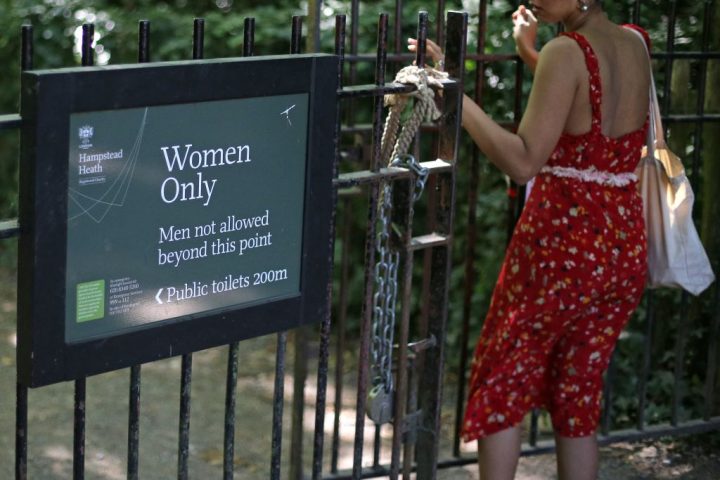The waters of Hampstead ladies’ pond are this week, it seems, more troubled than ever. Last Sunday, amidst cries of ‘traitor’ and ‘shame on you’, the Kenwood Ladies’ Pond Association (KLPA) voted against barring transwomen from using it. As a result, this unique bathing site, billed as providing ‘a place of refuge and security for women and girls of all ages,’ would now appear to be suffering from terminal mission creep.
Already a subscriber? Log in
Subscribe for just $2 a week
Try a month of The Spectator Australia absolutely free and without commitment. Not only that but – if you choose to continue – you’ll pay just $2 a week for your first year.
- Unlimited access to spectator.com.au and app
- The weekly edition on the Spectator Australia app
- Spectator podcasts and newsletters
- Full access to spectator.co.uk
Or




















Comments
Don't miss out
Join the conversation with other Spectator Australia readers. Subscribe to leave a comment.
SUBSCRIBEAlready a subscriber? Log in